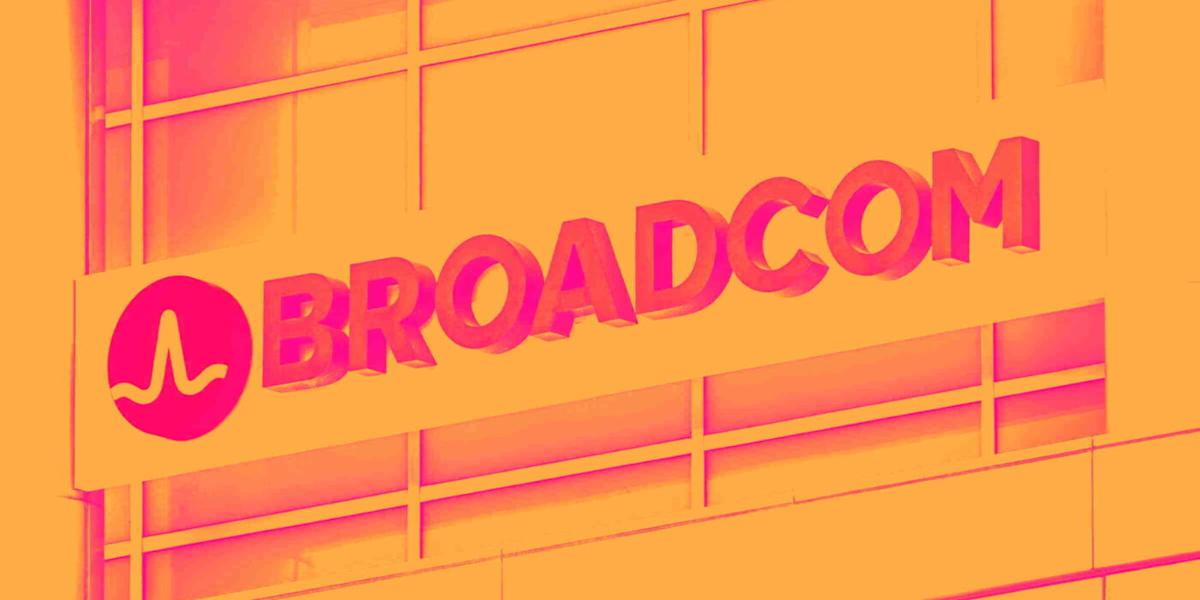Shares of fabless chip and software maker Broadcom (NASDAQ:AVGO) fell 3.3% in the morning session after a broader pullback sparked by reports that China banned its major tech firms from buying U.S. artificial intelligence chips. The negative sentiment weighed heavily on the Nasdaq, with the news first hitting chipmaker Nvidia and then rippling out to drag down fellow tech giants, including Broadcom.
The stock market overreacts to news, and big price drops can present good opportunities to buy high-quality stocks. Is now the time to buy Broadcom? Access our full analysis report here, it’s free.
Broadcom’s shares are very volatile and have had 24 moves greater than 5% over the last year. In that context, today’s move indicates the market considers this news meaningful but not something that would fundamentally change its perception of the business.
The previous big move we wrote about was 7 days ago when the stock gained 8.2% on the news that software giant Oracle (ORCL) boosted its outlook, citing booming demand for its cloud services from artificial intelligence firms.
Oracle’s shares soared after the announcement, creating a positive ripple effect across the semiconductor industry. The surge in demand for Oracle’s cloud infrastructure from AI companies highlights the massive computing capacity required to compete in the AI race. This translates into significant investment in the underlying hardware, directly benefiting AI chipmakers such as Nvidia, AMD, and Broadcom. The positive sentiment underscores what some analysts call an ongoing “AI supercycle,” reinforcing investor confidence that the demand for advanced data center chips and related products remains robust.
Broadcom is up 49% since the beginning of the year, and at $345.67 per share, it is trading close to its 52-week high of $369.57 from September 2025. Investors who bought $1,000 worth of Broadcom’s shares 5 years ago would now be looking at an investment worth $9,446.
Today’s young investors likely haven’t read the timeless lessons in Gorilla Game: Picking Winners In High Technology because it was written more than 20 years ago when Microsoft and Apple were first establishing their supremacy. But if we apply the same principles, then enterprise software stocks leveraging their own generative AI capabilities may well be the Gorillas of the future. So, in that spirit, we are excited to present our Special Free Report on a profitable, fast-growing enterprise software stock that is already riding the automation wave and looking to catch the generative AI next.

